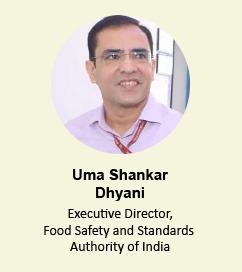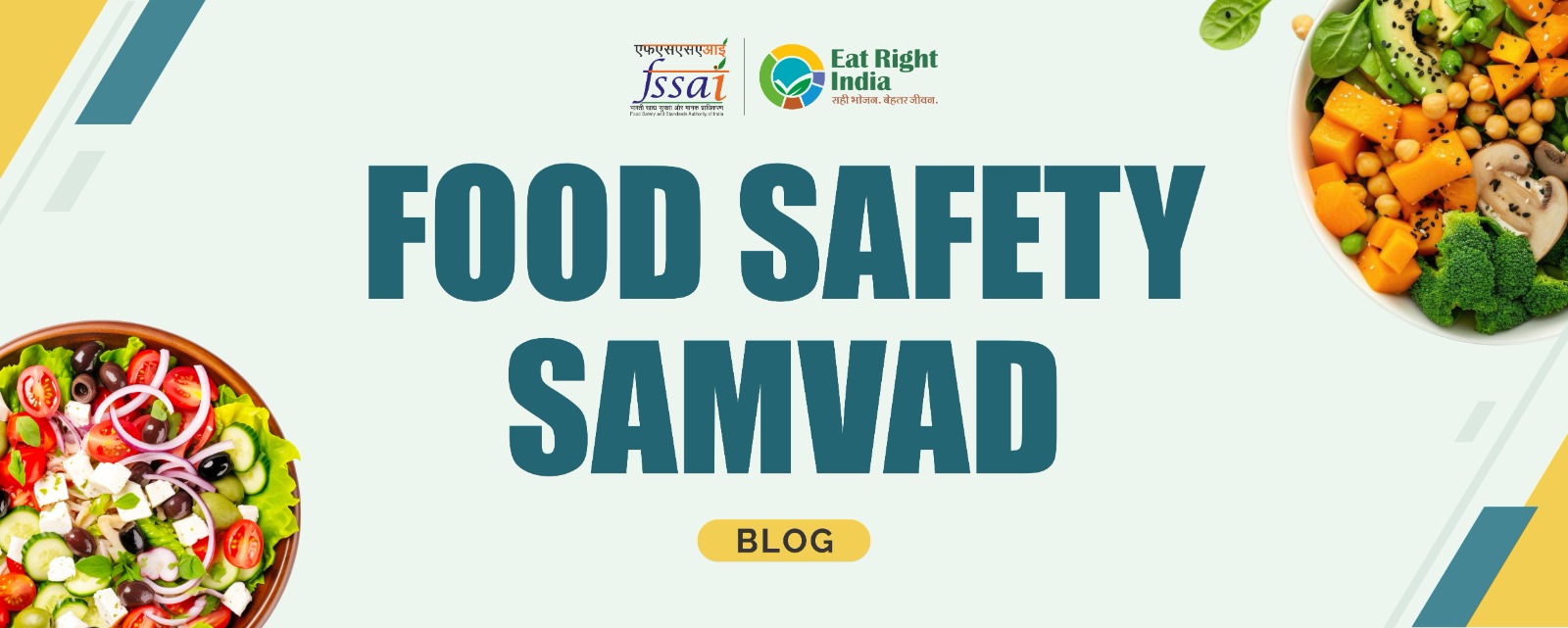
Eat Right India: Transforming India’s Food Landscape
Food is a basic building block of life, but its role transcends mere sustenance. It impacts our health, well-being and overall quality of life. The consumption of safe and nutritious food is pivotal in promoting good health, preventing diseases, and ensuring a sustainable and healthy future.
As the world advances and systems become more complex, food choices are changing drastically across the globe. Today, with rapid urbanization and changing lifestyles, dietary patterns have shifted towards pre-packaged foods, frozen foods, and fast food, including fried foods and desserts. This shift is increasing the burden of diet-related diseases such as diabetes, hypertension, and obesity. India faces a silent epidemic today of rising childhood obesity coupled with under-nutrition and micronutrient deficiencies.
With the focus on preventive healthcare through ensuring safe, healthy and sustainable food for all people, Food Safety and Standards Authority of India (FSSAI) under the Ministry of Health and Family Welfare launched the Eat Right India movement in 2018. This movement is envisioned as a transformative large-scale change initiative that combines regulatory, capacity building and empowerment approaches judiciously to protect and advance public health and improve quality of life of all people. The movement is based on three key pillars of, ‘Eat Safe, Eat Healthy and Eat Sustainable’ with the tagline - ‘Sahi Bhojan Behtar Jeevan’ (right food, better life).
The "Eat Safe" component of the campaign focuses on food safety and hygiene. It aims to promote safe food handling practices, raise awareness about foodborne illnesses, and encourage people to buy food from trusted sources.
The "Eat Healthy" component of the campaign aims to promote a balanced and nutritious diet. It encourages people to eat a variety of foods from different food groups, such as fruits, vegetables, whole grains, legumes, nuts, and seeds. The campaign also promotes the use of locally grown and seasonal foods, which are more nutritious and environmentally sustainable.
The "Eat Sustainable" component of the campaign aims to promote sustainable food production and consumption. It encourages people to reduce food waste, conserve natural resources, and support local farmers and food producers. The campaign also promotes the use of eco-friendly packaging and transportation methods to reduce the carbon footprint of food production and distribution.
Eat Right India's “Whole of Government” Approach
Eat Right India brings together diverse stakeholders from various institutions like government departments, consumer organisations, development partners, industry associations, academia, professional associations etc., working closely on the food systems identified from pre-existing multi-stakeholder platforms or coalitions working on various food-related issues. The movement adopts a "whole of government" approach, bringing together all food-related mandates from ministries of agriculture, health, environment and others
Eat Right India's “Whole of Society” Approach
Furthermore, since foodborne illnesses and various diet-related diseases cut across all age groups and all sections of the society, Eat Right India also adopts a ‘whole of society’ approach, bringing all society groups together on a common platform.
The food systems being complex in nature invites a more holistic and coordinated approach. The "whole of government" and "whole of society" approaches adopted by FSSAI underpin its role as "enabler and reformer" (as well as "implementer") to build a positive, collaborative and inclusive environment to foster a sustainable food system in India.
Given the size, spread and complexity of India, where a large proportion of the food businesses are in the unorganised sector, assuring safe and nutritious food to more than 1.40 billion citizens needs the participation of every stakeholder, and traditional regulatory tools alone cannot achieve this. Keeping this in mind, FSSAI has adopted a cluster approach for the unorganized sector through the Clean Street Food Hubs and Clean and Fresh Fruit and Vegetables Markets initiatives. For petty food vendors, who are part of a largely unregulated sector and are difficult to target individually, the cluster approach involves adopting a systematic process of gap analysis, filling infrastructure gaps, training and capacity building and certification and audit of such aggregation of vendors.
As part of the movement FSSAI, has also embarked on special initiatives like Eat Right Campus, Eat Right Schools, Eat Right Places of Worship & Eat Right Stations. These initiatives aim at empowering consumers in their daily lives, individually and at campuses- such as offices, schools, universities and institutes- where they regularly spend considerable time and consume food.
FSSAI has also successfully conducted walkathons & Eat Right Mela across the country, which are an info-tainment model to sensitize citizens to make the right food choices. The mela provides an opportunity to learn about safe food and healthy diets, including quick tests for adulterants, health and nutrition benefits of food, dietary advice by experts, information on Government programmes and initiatives, and much more.
The Eat Right India movement represents a holistic approach to food safety, nutrition, and sustainability, aiming to improve the health and well-being of all Indians. By bringing together diverse stakeholders and utilizing a multifaceted strategy, FSSAI is fostering a positive and inclusive environment to build a sustainable food system in India.

.png)
